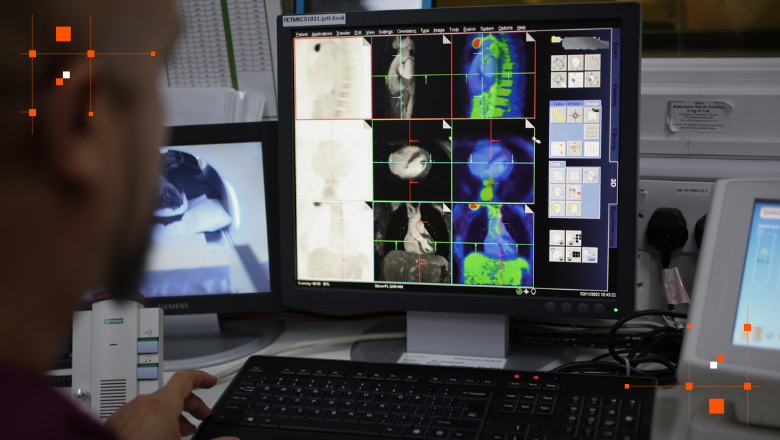Technology has advanced to offer new opportunities in the treatment for children with neuroblastoma. We want to make them available in the UK and utilise our research infrastructure to advance understanding of neuroblastoma and improve response to therapy.
Steve Archibald, Professor of Molecular Imaging, School of Biomedical Engineering & Imaging Sciences
16 September 2025
New project to develop key radiopharmaceuticals for neuroblastoma
Researchers from King’s College London have been awarded £268,301 for a project to improve the availability of three radiopharmaceuticals in the UK used for scans and treatment of children with neuroblastoma.

Neuroblastoma is an aggressive childhood cancer that contributes to 15% of childhood cancer deaths. Radioactive medicines – called radiopharmaceuticals – are used for both diagnostic imaging and treatment of children with neuroblastoma; however, some of the most promising new tools are currently unavailable in the UK.
Now, a project led by the School’s Professor Steve Archibald has been awarded funding as part of Neuroblastoma UK’s 2024 Grant Round – £143,301 partly funded by Neuroblastoma UK and £125,000 granted by Solving Kids’ Cancer UK supported by funding from Children with Cancer UK – to address this.
The 24-month project will focus on developing three radiopharmaceuticals: [124I]mIBG, [18F]mFBG, and [211At]mABG, which are not currently produced to the standards required for clinical use in the UK.
These radiopharmaceuticals could be used to produce more detailed images, reduce scan times for children using advanced total body PET technology and enable same-day imaging to avoid prolonged hospital visits. One of the radiopharmaceuticals – [211At]mABG – is a promising new alpha therapy that delivers radiation directly to cancer cells while sparing healthy tissue, so the project could help begin early stage testing of the therapy.
The project will include collaborations with research centres and hospitals in the UK and Netherlands and industry partners to support the development and operation of cutting-edge synthetic chemistry units. Furthermore, the KWF Dutch Cancer Charity and Cancer Research UK have established a framework agreement for a multi-centre clinical trial after this project to assess the effectiveness of diagnostic radiopharmaceuticals in neuroblastoma patients.
There is an urgent and unmet need for the development of these scanning drugs. Making them available for use in hospitals could significantly improve care for children with neuroblastoma in the UK.
Zara Aitchison, Trustee of Grants and Executive Team, Neuroblastoma UK

